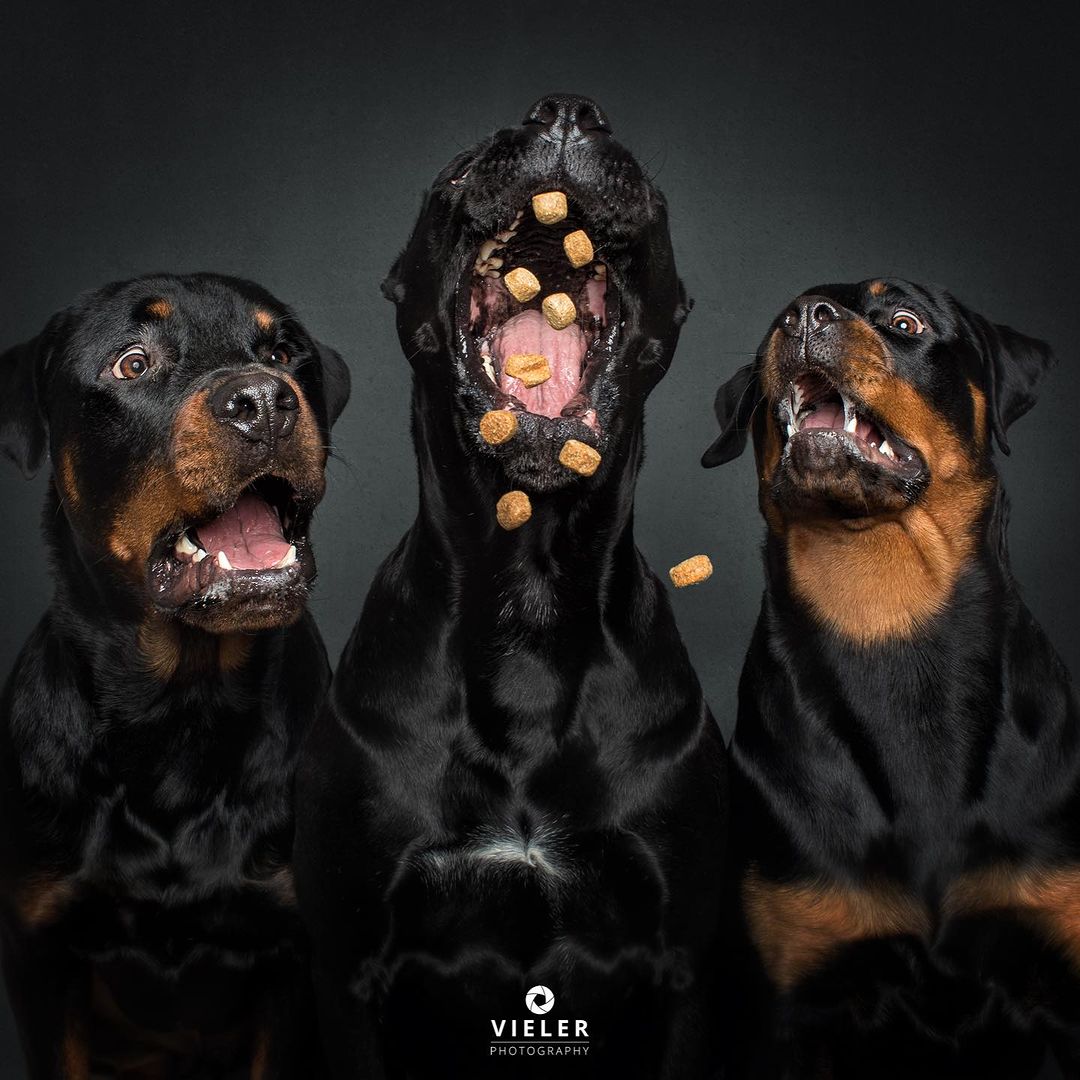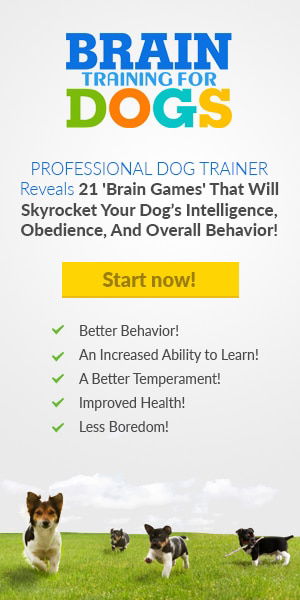We're an affiliate
We hope you love the products we recommend! Just so you know, we may collect a share of sales or other compensation from the links on this page at no additional cost to you. Thank you if you use our links, we really appreciate it!
Your dog is looking a little skinny, and once again you’re wondering, why is your dog not eating his food but will eat treats.
Being a dog owner can raise a lot of questions, the good news is that we have the answers.
Today we’ll talk about why your dog may prefer treats to food, and how eating too many treats is unhealthy for your dog.
The importance of good nutrition for your dog, as well as tips and tricks to get your dog eating the nutritious food it needs.
Let’s dive right into why your dog prefers its treats to its food.
Why Is Your Dog Not Eating His Food But Will Eat Treats
There are a lot of different reasons why your dog may prefer treats to food, here are the most common.
Preference and Taste
Just like humans, dogs can prefer certain foods over others. Let’s face it, you and I have both chosen french fries over salad many times.
Treats are manufactured to taste really good, so if your dog thinks they have a choice, chances are they’re going to choose treats.
It may be the variety, the texture, or the taste of treats. It’s no wonder that your dog prefers them to the same old nutritious food every day.
Sometimes it’s not just preference though, there may be an actual health issue involved.

Health Issues
Several health issues may affect your dog’s appetite, regular food may not be enough of a temptation for them to want to eat. Health issues such as:
- Dental issues: If your dog has tooth decay or broken teeth it may hamper his ability to eat, as well as cause your dog pain. Eating one treat is a lot easier than eating a lot of food out of a bowl, make sure you are getting regular checkups at the vet for dental care.
- Gastrointestinal (GI) problems: Dogs having trouble digesting food or with upset stomachs may not want to eat, GI problems can occur for many reasons. They can cause symptoms of nausea, vomiting, and diarrhea among others.
- Infections: If your dog is normally a good eater but suddenly loses interest in food it may be due to illness. Many common infections affect a dog’s appetite, if your dog loses their appetite and has other symptoms of illness call the vet immediately.
Taking your dog for regular health checkups to the veterinarian is a good way to keep them healthy, as well as avoid health-related eating problems. Another thing that can affect your dog’s eating is their behavior.
Behavioral Factors
If you have changed your dog’s routine recently, or if you have a high-anxiety dog who is prone to stress anyway then your dog may not be eating due to a behavioral issue. They may not feel safe or comfortable enough to eat their food.
Treats are associated with positive experiences so they will still eat them rather than eating their normal food.
Stress and anxiety can play a large role in your dog being willing to drop its guard and eat, both of these can also be affected by the environment you feed your dog in.
Feeding Environment
When a dog is forced to eat in an uncomfortable environment it can cause eating problems. These are a few examples of problem environments:
- One with lots of distractions.
- Other animals in the area are possibly aggressive.
- Extreme or unusual weather conditions.
- Food bowls at the wrong height causing discomfort.
If your dog won’t eat their food but will eat treats, try changing their eating environment. Another factor could be the quality of food you are offering him.
Quality of Food
It is important to feed your dog high-quality nutritious food, if you are feeding low-grade dog food it may contribute to them not feeling the best.
Remember the GI problems I mentioned earlier? Getting your dog the right nutrients will help you bypass avoidable health conditions.
Make sure that you are changing your dog’s diet every once in a while, as your dog may just be getting bored of a bland diet. The real question is, are treats bad for your dog?
Risks of Excessive Treat Consumption
We all love giving our dogs treats but is it a problem to give them too frequently? There are several reasons why you shouldn’t be replacing your dog’s food with treats.
Nutritional Imbalance
While treats are yummy, unfortunately for your dog they aren’t nutritionally complete. Being such a small bite they lack a lot of the essential nutrients your dog needs to be healthy.
Weight Gain
Treats generally have more calories and fat compared to your dog’s food. This can lead to weight gain, obesity, joint pain, and a whole host of other health issues over time.

Digestive Upset
If your dog is receiving too many treats it can lead to GI issues, diarrhea, vomiting, and indigestion can all occur. Overloading your dog’s digestive system with new foods isn’t good, keeping a consistent diet is key to keeping your dog healthy.
Dental Issues
While you love giving your dog a treat now and then, giving regular treats can harm your dog’s teeth. Most treats contain lots of sugars and carbs, both of which contribute to cavities and gum disease.
Look into dental chews if you’re looking for a better option for treats.
Behavioral Problems
Treats can be very useful in your dog’s training, when you overfeed your dog treats you are taking the value out of them. Then they become less effective as a training tool, which can cause behavior problems down the road.
Preference Over Nutrient-Rich Food
If you overfeed treats your dog may prefer treats rather than their nutritionally complete kibble. This can lead to lots of health problems throughout their lives.
Allergies and Sensitivities
Dogs can be affected by allergies just as humans can, some treats may contain allergens that your dog is sensitive to. This can cause skin issues, digestive problems, and other unique health problems.
As you can see, treats aren’t the answer to your dog’s nutritional needs and overall health. So how do you go about encouraging them to eat their regular food rather than treats?
How to Encourage a Dog to Eat Regular Food Instead of Treats
If your dog already has a taste for the treats, there are several steps you can take to fix it.
Consulting a Veterinarian
First, consult your veterinarian, you want to rule out all the health issues listed above. Taking care of your dog’s health is your number one priority as a responsible pet parent.
Transitioning Gradually
Switching directly from treats to regular food can be hard, it will be easier to get your dog to accept the change if you do it gradually.
Mix some treats in with their food to start, then as they begin to eat everything in their bowl you can gradually decrease the amount of treats. While increasing the amount of dog food.
Enhancing Regular Food
If your dog is still not accepting their normal food, try spicing it up a bit for them.
You could add a healthy treat on top, like some cooked salmon, possibly some broth, or even some wet dog food that has more smell and flavor to it.
Establishing a Feeding Routine
Getting your dog on a feeding schedule can help a lot with food avoidance. If they don’t have access to food all day, they will be hungrier when feeding time comes around, this helps to prevent “snacking”.
It also helps you control your dog’s portions, and know how much they’re eating while avoiding overfeeding once your dog gets their appetite back.
Reducing Treats
Treats make great rewards, but they aren’t the only way to reward your dog. Using treats as rewards while also using praise as a reward is a good way to decrease treat consumption.
Using treats only for training purposes will decrease the negative health effects significantly, and at the same time, you will have a better-behaved dog.
FAQs
Do dogs go through phases of not eating?
Dogs may go through periods where they eat less but it is never normal or healthy for them to stop eating altogether.
My dog’s appetite changed suddenly. Should I be worried?
Make sure your dog has no other symptoms of illness, there are normal reasons that a dog’s appetite changes, but if you have concerns, call your veterinarian.
Can stress really affect my dog’s eating habits?
Just like humans, stress can affect a dog’s eating habits. It can cause them to eat less or more, try to find the cause of the stress and eliminate it.
What are some healthy treat alternatives I can offer to my dog?
Try offering your dog nutritious canned dog food, small amounts of canned pumpkin, or cooked salmon. Finding treats that are high in fiber and protein and low in carbs and sugar is important.
Conclusion
We’ve all overdone it when feeding treats to our dogs, so decreasing your dog’s treat consumption promptly will help their current and future health.
Have you tried all the techniques above and still struggling? It may be time to seek professional help from a veterinarian or a dog behaviorist. Your dog deserves a balanced and nutritious feeding routine.
Laura is the founder of Furs'n'Paws. She is a also a pet writer and expert with more than 20 years of experience of working with dogs and cats. She developed a very strong love for animals at a young age. Her passion led her to establish a thriving pet sitting and dog walking business in Dubai. As an expert in pet training, behavior, and nutrition, Laura is committed to helping pet owners and pet lovers by offering high-quality information on a wide range of topics.




No responses yet